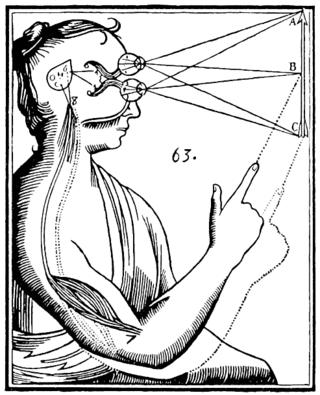philosophical or religious belief in two fundamental substances or principles, which often oppose each other From Wikipedia, the free encyclopedia
Dualism is the idea or theory that something (an object, an idea, or the whole world) is split into two parts. The parts are separate from each other, and the thing cannot be divided up in any other way.

That contrasts with the idea or theory that something cannot be split into any parts, which is called monism, and with the idea or theory that something can be split into many parts, which is called pluralism.
In philosophy, there are many kinds of dualism.
Dualism is also a common sense idea. For example, it is a form of dualism to say that a thing is hot or cold, good or bad, mine or somebody else's. That has no allowance for possible states in between.
In theology, dualism, also called duotheism, bitheism, or ditheism, refers to the doctrine or the belief that there are two independent divine beings or eternal principles: one good and the other evil. Examples of ditheism include Zoroastrianism, Wicca, and Marcionism. The Bible mentions Satan, but that is not ditheism since he is not equal to God but merely an angel (see Jude 6).
Ditheism is not the same as dualism, but they are similar. Ditheism implies (at least) two gods, but moral dualism does not imply any theism (belief in a god). The old dualist religion of the Roma people, Romanipen, is a simple belief in Devla (God) and Beng (Satan).[2]
Seamless Wikipedia browsing. On steroids.
Every time you click a link to Wikipedia, Wiktionary or Wikiquote in your browser's search results, it will show the modern Wikiwand interface.
Wikiwand extension is a five stars, simple, with minimum permission required to keep your browsing private, safe and transparent.